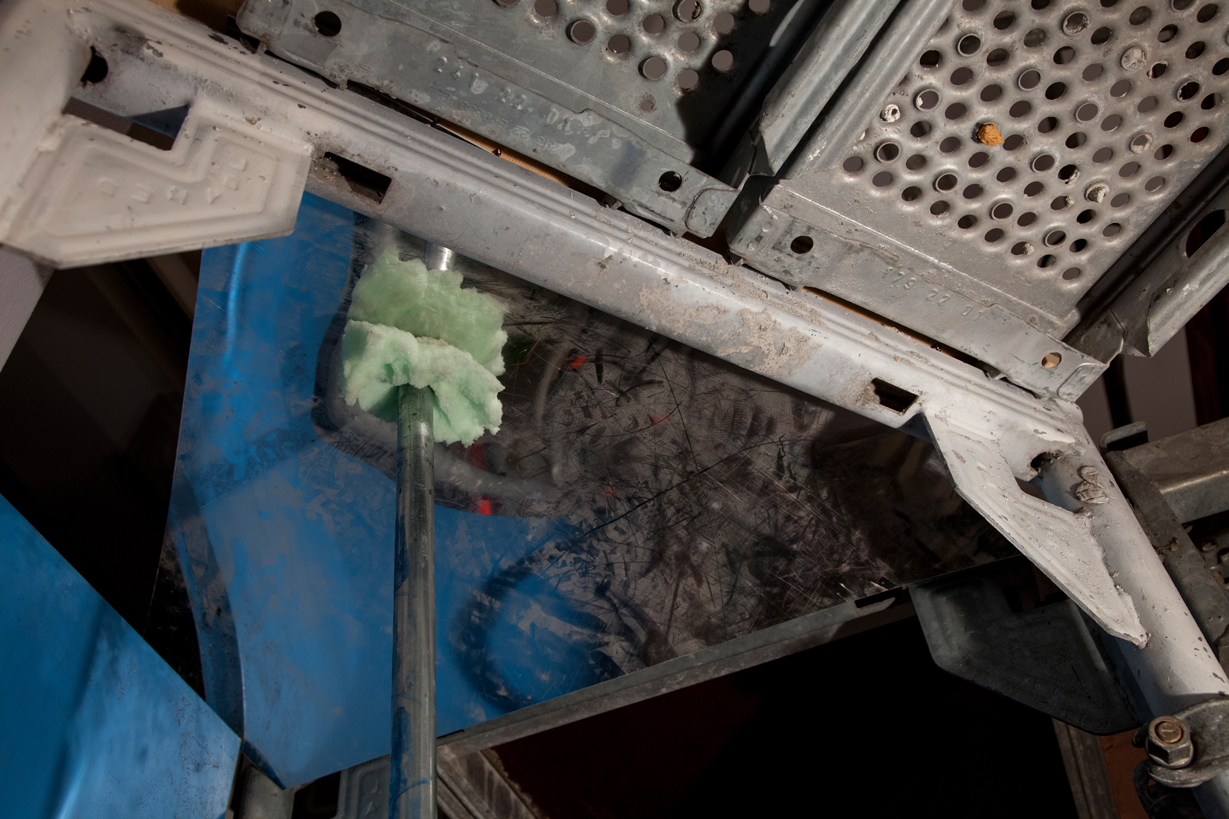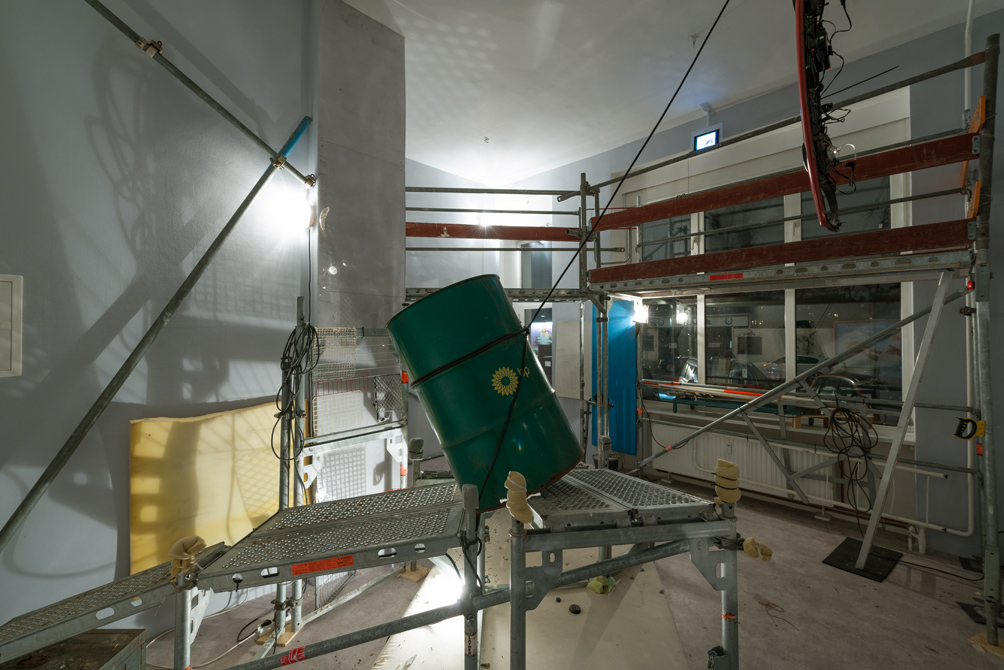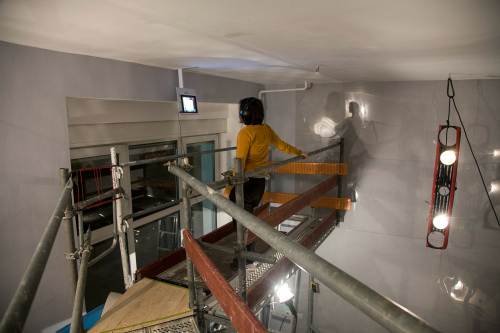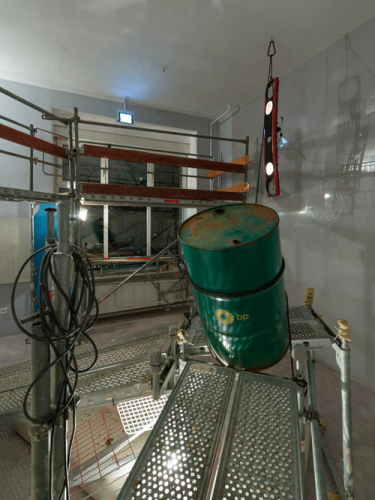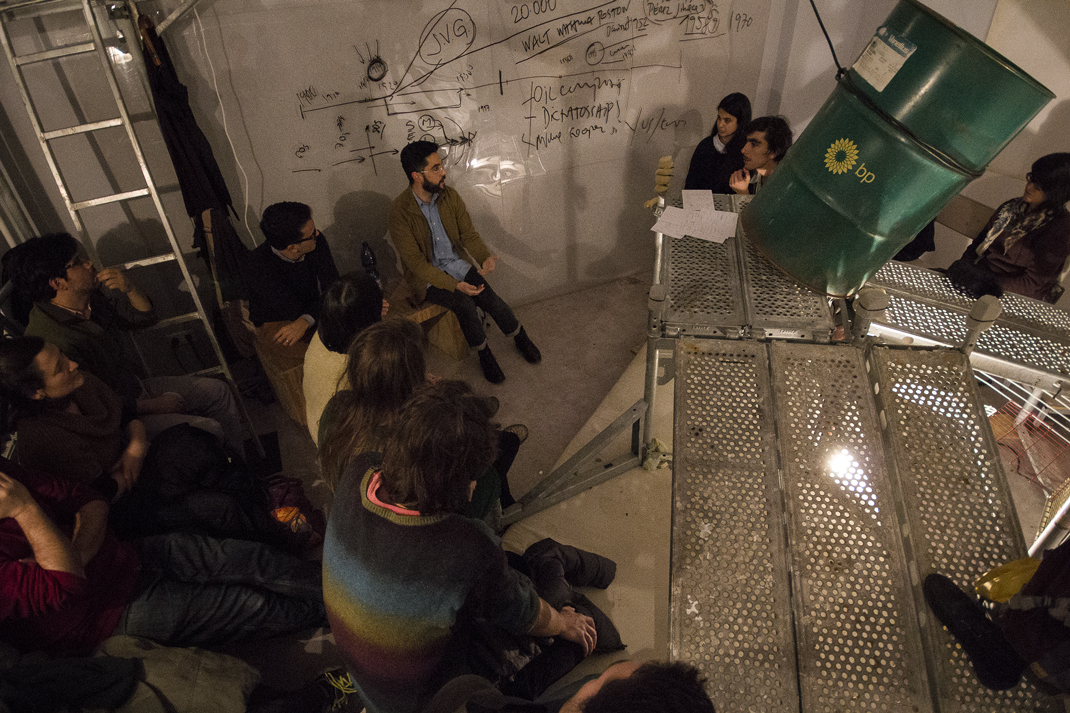-
I
THE MAGNAMINOUS SORCERER
-
“We never had to build many theaters in this country. Why should we? The normative structure of power was always our best stage ... Where did we get our public institutions and our notion of "state" from? From a hat, from a routine trick of prestidigitation... With the development of the oil industry a cosmogony was created in Venezuela. The state acquired a providential hue. From a slow evolution, as slow as everything that is related to agriculture, the state underwent a "miraculous” and spectacular development. It would be suicidal for a presidential candidate in Venezuela not to promise us paradise because the state has nothing to do with reality. The state is a magnanimous sorcerer ... Oil is fantastic and induces fantasies. The announcement that Venezuela was an oil country created the illusion of a miracle; it created, in practice, a culture of miracles ... Oil wealth had the power of a myth. Betancourt, Leoni, and Caldera did not go very far in this "Venezuelan dream" because our fscal income did not allow it; we were rich, but not that rich. But then came the other Pérez, Carlos Andrés Pérez, and we found the phrase that defned us. We were building the “Great Venezuela”. Carlos Andrés Pérez was not a president. He was a magician, a magician who was capable of propelling us toward a hallucination that made the exhibitionism of Pérez Jiménez seem pale in comparison. Pérez Jiménez decreed the dream of Progress. The country did not progress; it got fat. The rule of Pérez Jiménez was a debut, that of Carlos Andrés Pérez was a flamboyant revival.”
– José Ignacio Cabrujas (1937-1995), Venezuelan playwright and father of the telenovela.
-
II
.
THE RESOURCE CURSE and TROPICAL DUTCH DISEASE
.
Venezuela holds the world's largest proven oil reserves, estimated at 290 billion barrels, or 20% of all global reserves. It also has one of the highest crime rates in the world, with a murder rate second only to Honduras. As early as 1929, oil began to eclipse all other industries in Venezuela, leading to what was later coined “The Resource Curse Paradox”, or “Tropical Dutch Disease”. A Resource Curse is said to exist when an abundance of a natural resource leads to acountry's economic and social decline. Of course it is not the mere abundance which causes the downfall, but the sudden increase in reliance on foreign involvement, investment, and the volatility of commodity prices implicit in international trade. Shouts echoing on the trading floor of Chicago or a new hydraulic fracturing project can suddenly skew the price of oil, throwing of a delicate balance. Domestically, rampant corruption, mismanagement and poor policy-making often go hand-in-hand with the whims of the market in creating food shortages, hyperinflation, and the collapse of infrastructure. Despite its pre-oil-reliance history as an agricultural nation, and its year-round warm weather, Venezuela now imports two thirds of its food. The black-market cost of $1US has risen to an incredible 800 Bolivares, a diference of more than 1000% from the ofcial government rate. Still it costs less than the equivalent of $0.01 to fll up your car with gas.
-
III
.
THE NEW SPANIARDS
.
Indigenous Venezuelans utilized menewhich oozed up through the ground for sealing canoes, medicines and torcheslong before the Spanish arrived in the 16th century. A single barrel of oil was frst sent from Venezuela to Spain in 1539 to treat the gout of Charles V. It wasn't until nearly 400 years later in the 1910s, well after the Industrial Revolution had reshaped the world, that Venezuela began to actively drill for oil. Foreigners from Europe and the US began arriving with their companies who were contracted to drill and refne oil. A new form of xenophobia arose and the oil men became known as "Te New Spaniards".
“One day some Spaniards mounted a dark apparatus on three legs, a grotesque stork with crystal eyes. They drew something (on a piece of paper) and opened their way through the forest. Other new Spaniards would open roads...would drill the earth from the top of fantastic towers, producing the fetid fuid...the liquid gold converted into petroleum.”
– José Rafael Pocaterra, writer and politician, 1918.
-
IV
.
CICLON DEL DINERO: EL HELICOIDE
-
El Helicoide is a gigantic, spiraling structure which consumes the 30,000 square meter hill known as La Roca de Tarpeya in Caracas. Now a futuristic ruin, it was initially conceived within the framework of military dictator Pérez Jiménez's massive, high-modern urban renewal project of the 1950s. Typical of the era, Pérez Jiménez's opposition to communism and openness to foreign oil companies gained him strong backing from the US despite his brutal human rights abuses. While the complex landscaping needed to create the spiral drive-in shopping mall was completed in 1958, construction didn't begin until after Pérez Jiménez's overthrow saw a transition to democracy. Due to its exorbitant budget the project slowly ground to halt over the course of the 60s, leaving it unfnished and abandoned. It has since become the stuf of myth, having housed squatters, impromptu businesses, and multiple failed government projects. In 1982 the building was cleared of mudslide refugees, among reports of high drug and crime rates, to make way for a Museum of Anthropology. This stage of the project managed to fnally cap the structure with the
Buckminster Fuller geodesic dome which had been in of-site storage for 20 years. But again the project fell apart. TheVenezuelan intelligence police (DISIP, as it was known at the time) established its headquarters there where some political prisoners were tortured. Widely thought to be cursed, in 1992 two architects in charge of another failed project (a new headquarters for the Ministry of the Environment) held a meditation session at the site under the Fuller dome during which they claimed to have heard voices that an indigenous cemetery on the site had been disturbed during the construction. Today the labyrinthine structure still looms darkly on the hill, and its mysterious rooms and subterranean tunnels are used by SEBIN (Te Bolivarian Intelligence Service). Anti-government student protesters were detained and tortured there as recently as last year.
V
.
SOWING THE OIL
.
The precarity of Venezuela's relationship with petroleum has long been warned of by its most prominent thinkers. Arturo Uslar Pietri outlined the dangers the situation in his famous article “Sowing the Oil” (Sembrar el petróleo), in which he forcefully called for Venezuela's sustainable development. Regarded as “the nation's conscience,” he remarked later in his life, "I had hoped to grow old and die in a country beginning to have some sense of reality. But it is crazier than ever."
VI
.
THE GOOSE THAT LAID THE GOLDEN EGGS
.
A man had a goose that laid a golden egg for him each and every day. The man was not satisfied with this daily profit, and instead he foolishly grasped for more. Expecting to find a treasure inside, the man slaughtered the goose. When he found that the goose did not have a treasure inside her after all, he remarked to himself, 'While chasing after hopes of a treasure, I lost the profit I held in my hands!' - Translation from Aesop's Fables
-
VII
.
THE DEVIL'S EXCREMENT
.
“Ten years from now, twenty years from now, you will see: oil will bring us ruin... Oil is the Devil's excrement.” – Juan Pablo Pérez Alfonso (1903-1979), former minister of Development in Venezuela.
-
-
